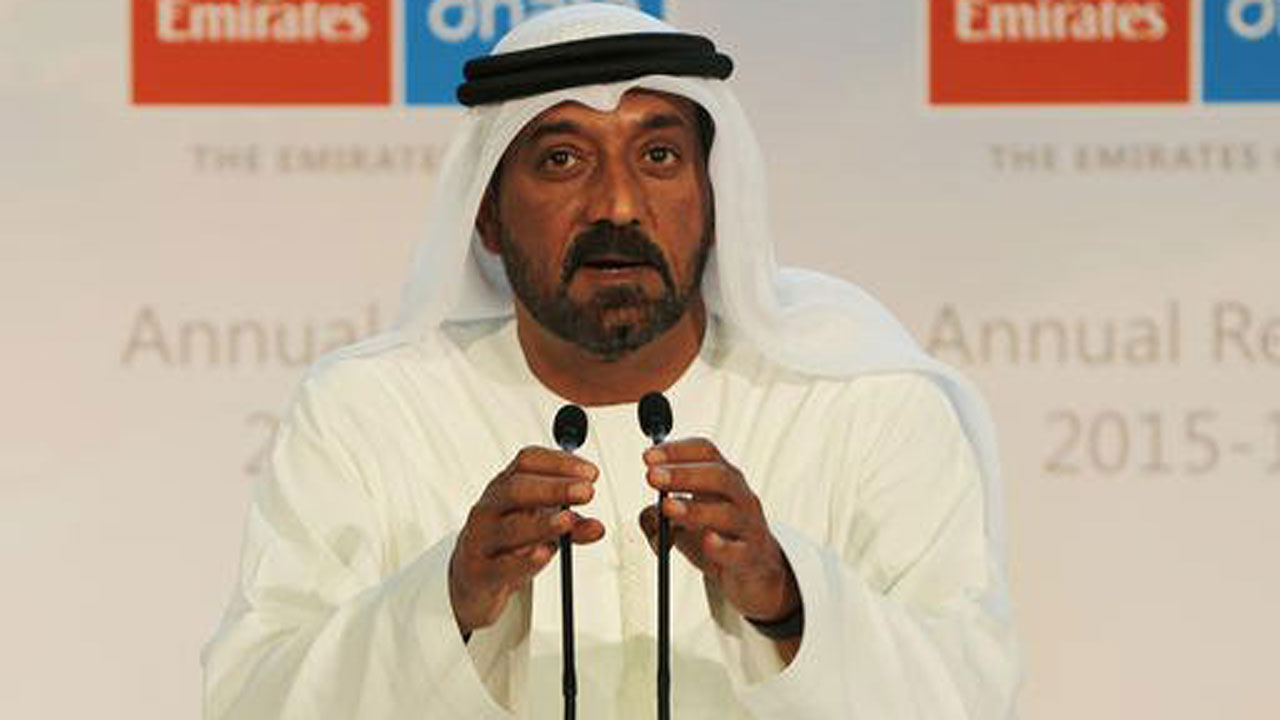
The Emirates Group has announced its half-year results for 2018-2019, posting a net profit of $296 million (AED 1.1 billion).
The group saw steady revenue growth compared to the same period last year, however, profits were impacted by 53 per cent slump due to the significant rise in oil prices, and unfavourable currency movements in certain markets, amid other challenges for the airline and travel industry.
The group’s revenue was $14.8 billion (AED 54.4 billion) for the first six months, which was up by 10 per cent from $13.5 billion (AED 49.4 billion) during the same period last year.
The profit erosion was primarily due to the significant increase in fuel prices of 37% compared to the same period last year, as well as the negative impact of currencies in certain markets.
The group’s cash position on 30th September 2018 was at ($5.9 billion (AED 21.5 billion), compared to $ 6.9 billion (AED 25.4 billion) as at 31st March 2018.
Chairman and Chief Executive, Emirates Airline and Group, Sheikh Ahmed bin Saeed Al Maktoum, said Emirates and dnata grew steadily in the first half of 2018-19. “Demand for our high quality products and services remained healthy, as we won new and returning customers across our businesses and this is reflected in our revenue performance. However, the high fuel cost as well as currency devaluations in markets like India, Brazil, Angola and Iran, wiped approximately AED 4.6 billion from our profits.
“We are proactively managing the myriad challenges faced by the airline and travel industry, including the relentless downward pressure on yields, and uncertain economic and political realities in our region and in other parts of the world. We are keeping a tight rein on controllable costs and will continue to drive efficiency improvement through the implementation of new technology and business processes,” Al Maktoum said.
He added that the next six months would be tough, but the Emirates Group’s foundations remain strong.
“I’m pleased to note that our home and hub in Dubai continues to attract travel demand, as the airline saw nine per cent more customers enjoying Dubai as a destination in the first half of 2018-19 compared to the same period last year. We expect this demand to remain healthy as new attractions come online and the city gears up for Dubai Expo 2020.
“Moving forward we are firmly focused on sustaining our business. We will do this by being agile to capitalise on opportunities, and investing to serve our customers even better with high quality products that they value,” he said.
In the past six months, the Group’s employee base reduced by one per cent compared to 31 March 2018, from an overall average staff count of 103,363 to 101,983.
This was largely a result of natural attrition, together with a slower pace of recruitment as the business continues its various internal programmes to improve efficiency through the implementation of new technology and workflows.
During the first six months of 2018-19, Emirates airlines received eight wide-body aircraft – three Airbus A380s, and five Boeing 777s, with five more new aircraft scheduled to be delivered before the end of the financial year.
The airline also retired seven older aircraft from its fleet with further four to be returned by 31 March 2019. The airline’s long-standing strategy to invest in the most advanced wide-body aircraft enables it to improve overall efficiency and provide better customer experiences.
In the period under review, Emirates carried 30.1 million passengers between 1 April and 30 September 2018, up three per cent from the same period last year. The volume of cargo uplifted at 1.3 million tonnes is largely unchanged, while yield improved by a healthy 11 per cent. This performance is the result of Emirates SkyCargo’s focussed investments in products and services tailored to key sectors, which gives it a strong competitive edge in a recovering global air freight market.
In the first half of the 2018-19 financial year, Emirates net profit is $62 million (AED 226 million), down 86 per cent, compared to last year. Emirates revenue, including other operating income, of $13.3 billion (AED 48.9 billion) was up 10 per cent compared with the $12.1 billion (AED 44.5 billion) recorded during the same period last year. This result was driven by increased agility in capacity deployment, and improved seat load factors despite fare increases reflect the healthy customer demand for Emirates’ products.
[ad unit=2]



